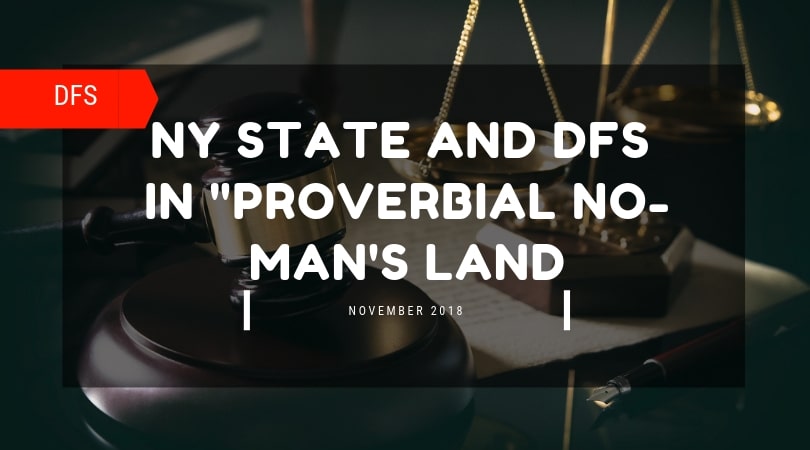Responsible Gambling Features are Effective in New Jersey

Rutgers Centre for Gambling Studies has released the results of a study that they have conducted, which was looking at the problem gambling in the state of New Jersey; the study also took a close look at the measures that regulated online gambling sites in the state have been taking to prevent problems associated with gambling from rising.
The study, which was titles “Internet Gaming in New Jersey,” is part of a mandated responsible gaming initiative; it was funded by tax revenues that have been generated by online operators in the state. The 2016 study marks the second consecutive year that the study has been successfully conducted since the launch of online gaming in New Jersey in 2013.
Fewer New Accounts were Created Last Year
The report indicated that the number of individuals who signed up for new online accounts in the state had fallen from 531,626 in 2014 to 378,103 in 2015; while the difference seems like a lot, the numbers only indicated a 29 per cent year over year drop. This was not entirely unexpected, as the high number of new sign ups in the previous year could be explained by the initial rush that was triggered when the online gambling market was launched in New Jersey, some of that frenzy seeped into the early months of 2014 contributing to the high numbers for the year. In fact, a drop in the number of sign ups, which is as small as 29 per cent, suggested that recent marketing initiatives that have been taken by several operators were proving to be successful in drawing a steady stream of new players to the gambling sites.
A bigger discrepancy was noticed between the number of new sign ups and the number of players who actually took part in the games. Of the 378,103 new registrants, only 28 per cent, 107,535 players, had actually taken part in any online gambling activities; this is because firstly, a proportion of accounts were created from states outside of or even in foreign countries, while players from outside of New Jersey are allowed to open accounts on these NJ online gambling sites, they are not allowed to place any wagers through them. The second reason behind the low number of participants compared to registrants could be the continued issues on the payment processing front.
Out of the 107535 registrants, who did place wagers through the online sites, 74 per cent or 79,682 individuals used it to play games on casino sites. Nearly 6.6 per cent of these casino players listed their residence as being outside of the New Jersey area; according to the rules, players are allowed to place wagers on the gambling sites while they are physically present in the state, this means, the players were likely to be out of town visitors.
The highest representation among the casino players, perhaps unsurprisingly, was of the male demographic, between the ages of 25 and 34.
Out of all the people who signed up for new accounts in 2015, 69 per cent of the individuals only registered one account against their names, while 12 per cent of them had created three or more accounts for themselves.
New Jersey has a wide variety of online casino options, including the Golden Nugget, Tropicana, and the Mohegan Sun, among several others; when collating data on player preferences, there was definitely some evidence of brand loyalty ; patrons from specific land-based casinos showed a strong preference for their online partners; this may have partially been triggered by several initiatives the casinos have taken to prevent their customers from wandering off to the competition.
Responsible Gaming Features Seems to be Working Effectively
As part of the online gaming law, operators who wish to offer online gambling services in the state of New Jersey have to make certain responsible gambling feature available to their customers. The responsible gaming measures typically include daily, weekly or monthly deposit limits, loss limits, time limits, cool off periods and self-exclusions that can stretch from 1 to 5 years.
The study found that that these initiatives are not going unnoticed by patrons. A total of 13,422 gamblers used responsible gaming features last year; that is 14.23 per cent of the total registered number of gamblers.
Younger players were more likely to take advantage of these restrictions; 31.2 per cent of those in the 25-34 age demographic were using at least one responsible gaming feature; this was followed by 23.2 percent of players in the 35-44 age demographic and 19.8 percent of older players, in the 45-54 age demographic.
The study also found that women were far more likely to restrict their play than men. Only 23 per cent of players registered on the New Jersey online gaming services were women but they represented 40 per cent of customers who were using the responsible gambling features; this indicated that 25 per cent of female customers used the feature. In contrast, male players that made up 77 per cent of the online gambling customer-base in New Jersey, represented a mere 60 per cent of those who used responsible gambling options; therefore, indicating that only 14 per cent of men chose to impose any form of limits on themselves.
Self-exclusion, while the most drastic of all the options, also proved to be the most popular of the responsible gambling features in 2015. Any player who chooses to apply the self-exclusion option themselves is automatically barred from all New Jersey online gambling activity for a period of at least one year.
According to the study, just under 10,000 players had applied self-exclusions on themselves over the course of 2015 and another 17 per cent had utilised other responsible gaming tools, with the most common one being cool-offs; players often opt for the cool-off option before placing long term self-exclusions on themselves.
In 2014, deposit limits were the most popular feature that was accessed by customers; 6,851 players, 1.3 percent of those registered on the service restricting the amount of money they could load on to the gambling sites. However, in 2015, deposit limits became less than one-third as prevalent as self-exclusions, with 3,085 players taking advantage of the option.
One plausible explanation for this change could be that the players who started off by imposing limits on themselves in 2014, graduated to more severe measures by the following year.
Problem Gambling in Land-Based Vs Online Casinos
The Rutgers study cites other reports that claim that problem gambling is more prevalent among online gambling customers than those who only visit land based venues.
According to a state-wide prevalence study, just 4.5 per cent of land based casino visitors qualify as high risk problem gamblers; in contrast, 14.3 per cent of online-only players and 36.9 per cent of players who frequent both online sites and land-based casinos, mixed players, qualify as high risk problem gamblers.
On one hand, it is easy to see how the same benefits of convenience, round the clock access and comfort, which make online gambling an attractive option, can also lead players down a slippery slope towards problems associated with gambling; but, the prevalence of high risk players are the most abundant in mixed group gamblers compared to online-only players. This suggests that online gambling options may serve as more of an alternative medium for the problem gamblers rather than being a catalyst or even the source of the problem.
In a column for Online Poker Report, Steve Ruddock suggested that the study may be unjustifiably classifying online players as problem gamblers. He said that online poker players and other professional advantage gamblers “generally tick off a lot of the boxes for problem gambling behaviour because of the frequency and size of their wagers, and not because they have the classic symptoms of problem gambling.”
Despite these conflicting reports, if we choose to believe that online gamblers are in fact more prone to developing gambling related problems and addictions, they have the option of accessing a number of responsible gambling tools, which are available just a few clicks away.
The same preventive options are not available for gamblers, who choose to frequent land based casinos. At these brick and mortar facilities, players can choose not to have their play tracked; problem gamblers would also have to go through an exhaustive process in order to self-exclude themselves from play, even minors can gain access to their offerings very easily as there really is no strict process in place to try to identify them at the facilities and finally, the stakes are generally much higher at the brick and mortar facilities compared to their online counterparts.
What the Future Holds
A number of suggestions have been made in the report about how problem gambling may be tackled in coming years.
In the 2014 report, Rutgers recommends improving responsible gaming “education, access, consistency, and branding.” They indicated that players who were aware of how to use the responsible gambling features before they started playing online, turned out to be the most modest players
Another recommendation along the same lines suggested Rutgers including responsible gambling “as part of registration for a player account and for continued usage for existing players,” thereby forcing players to at least acknowledge the responsible gambling features before making a first deposit.
So basically, the common idea here is that of awareness, by placing the responsible gambling feature in easy access of player the operators could “likely increase the number of players who try various features and also ensure that they are fully informed about the range of options.”










